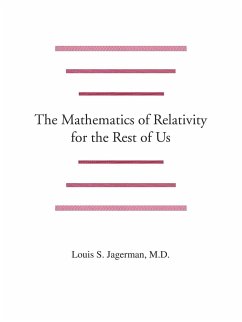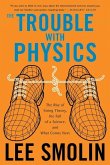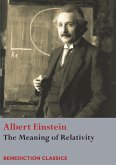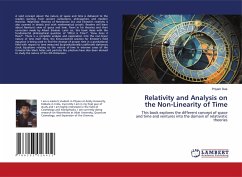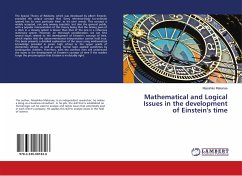The Mathematics of Relativity for the Rest of Us provides a detailed explanation of relativity, particularly its mathematics, designed for the non-professional audience. The subject is developed from basic principles and observations in physics and mathematics, starting with algebra and geometry as taught in thorough high school courses. On the premise that this background suffices to build an appreciation and understanding of the subject, the crucial concepts are spelled out, and the key derivations are disclosed step-by-step. The relativity of time, space, and mass is covered first, giving some attention to the history of the two main divisions of relativity, the special and the general. Once special relativity and its mathematics are established, general relativity is covered, beginning with its relationship to Newton's laws and advancing through its revolutionary concepts as well as its mathematics. This process is carried all the way to the level of tensor equations. The Mathematics of Relativity for the Rest of Us treats topics such as: The constant speed of light, the invariant laws of physics, the basis and meaning of the equation E = mc2, the nature of curved four-dimensional space-time, the importance of non-Euclidean geometry, the gravitational bending of light, experimental confirmation of relativity, the philosophical and intellectual appeal of relativity, the nature of black holes, and the cosmologic significance of relativity -- both as concepts and as mathematical issues. As a result the sufficiently attentive reader is set at ease with the reputedly incomprehensible but essential details about relativity. Even subjects such as "tensor calculus" and the "covariant partially differential field equations of general relativity" will be clear. For instance such a reader will know just what a "tensor" is, why the equations are "covariant," why they are "partially differential," why they are "field" equations, why relativity can be "general," and most importantly just what is meant by "relativity." Furthermore, if a reader is shown the fundamental equation of general relativity, Rik - 1/2gikR = -XTik he or she will understand what every term of this equation means, why each is included, what obstacles Einstein and his colleagues overcame to derive each term, what impact this equation has on modern science, and why this equation revolutionized our understanding of our universe. The Mathematics of Relativity for the Rest of Us also devotes a chapter to the relationship between relativity and quantum mechanics. It reveals the limitations of relativity and the direction of future work in this branch of science. The chapter concludes with the role of string theory in reconciling relativity and quantum mechanics.
Hinweis: Dieser Artikel kann nur an eine deutsche Lieferadresse ausgeliefert werden.
Hinweis: Dieser Artikel kann nur an eine deutsche Lieferadresse ausgeliefert werden.

